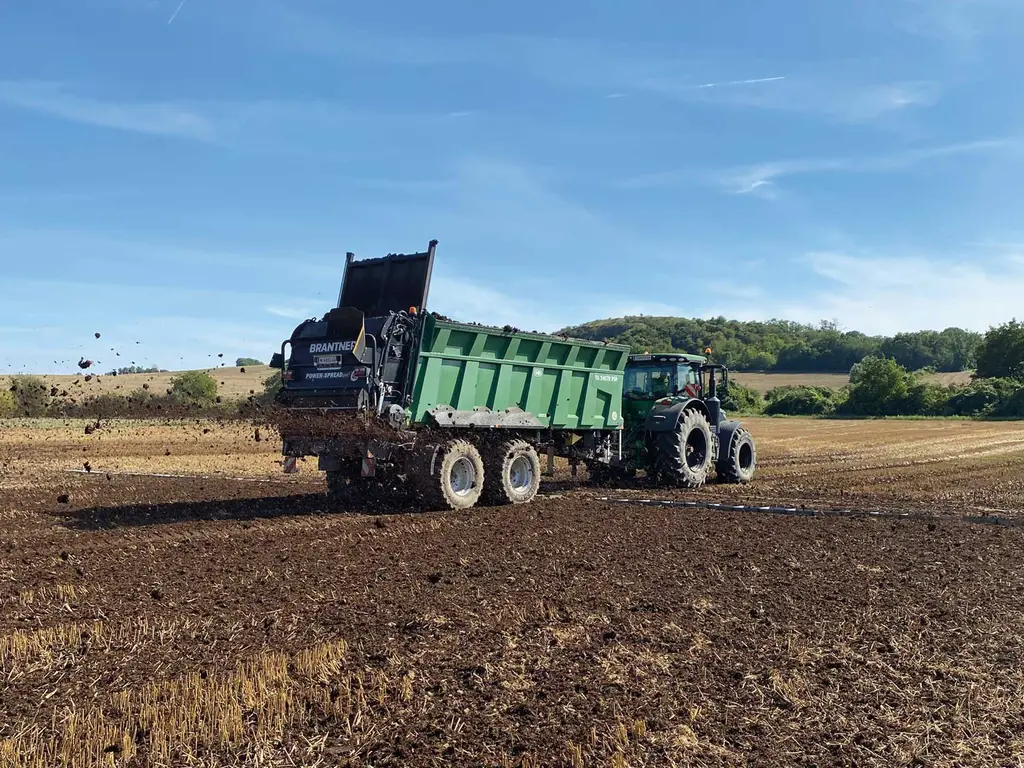Livestock farms always attach particular importance to animal feed and feeding in terms of farm inputs; consequently, considerations regarding management sustainability are also very well reflected in this area. By no means least, 'good' animal nutrition is dependent on good ration planning and the appropriate feeding system. Suitable and high-quality farm inputs play a crucial role in meeting the basic recommendations for the supply of nutrients and energy.
Minimising the use and emissions of environmentally-relevant substances
One goal that has traditionally been pursued intensively, particularly in feeding, remains the minimisation of the use and emissions of environmentally-relevant substances such as N (nitrogen) and P (phosphorus). In the future, however, the objective will increasingly be to maintain and evolve minimisation strategies that have already been established and anchored in practice as well as to adapt them to new framework conditions, if necessary. At the same time, the necessary openness towards new approaches will remain necessary. Ration components with particularly high availability or digestibility, for example, can make an important contribution besides traditional approaches such as optimising the amino acid composition of the ration, suitable enzyme supplements (especially phytases) or the use of efficient probiotics.
Focus on methane production
Over the past decade at the latest, the minimisation of greenhouse gas emissions such as methane has also had to be taken into consideration when addressing the topic of 'environmentally relevant outputs'. In Germany, greenhouse gas emissions from agriculture still play a significantly smaller role compared to other sectors (according to current data from the German Environment Agency, approximately 7.5% of the total CO2 equivalents incurred in Germany are attributable to agricultural production, with 3% being attributable to methane production, particularly due to ruminants). However, the farming sector is also required to develop and implement realistic minimisation approaches. The field of activity that has arisen in this respect in recent years is constantly evolving. There is therefore enormous scope for innovation with respect to validated reduction strategies, e.g. for N and P emissions, with the result that the industry must continue to tackle the issue of 'climate-friendly farm inputs' at all levels in the coming years.
Innovative optimisation approaches
Interesting and innovative optimisation approaches will once again be presented at EuroTier 2024. These encompass different areas and range from evolutions in methane-reduced feeding to climate gas-reduced slurry storage. Further products in the field of methane-reducing additives appear to be reaching practical maturity. Even if a reduction to zero is not to be anticipated due to greenhouse gas-reducing procedures, however, this path should continue to be pursued under all circumstances, and all potentials for reductions should be sounded out and the strategies combined with one another in order to achieve the maximum possible effect throughout the entire farm. However, the use of rewarding subsidies must be urgently considered in order to ultimately anchor verifiably successful procedures in practice.
Fostering animal health through feeding
Besides the previously mentioned minimisation of nutrient emissions, the area of animal health and animal welfare has always been very important, whether through the easier implementation of general hygiene measures on the farm or also through animal feeding. Although this area has been on the agenda for some time, the industry's efforts, particularly in the area of animal feeding, have continuously increased and will also presumably continue to do so. Particularly in this area, numerous innovations and ideas can be anticipated at EuroTier. These can range from an optimised supply of directly health-relevant nutrients such as vitamins and trace elements and the synergistic combination of various nutrients up to and including optimised hygiene in the barn. Numerous approaches (e.g. pre- and probiotics or essential oils) also aim to positively influence the microbiome of animals' intestines in diverse ways and thereby to increase the animals' general resilience to various stress factors. Further solutions include feeding concepts that are adapted to the animals' specific metabolic situations.
Avoiding competition with humans for food
The use of farm inputs is always subject to change. As an overarching and general development in the area of animal feed, it can be anticipated that the avoidance of food competition with humans will become an important driver of innovations as (land) resources generally become scarcer. This may mean, for instance, that a farm's own (basic) feed will continue to become increasingly important (over and above the huge importance that it already has in many areas today, of course). The use of all forms of co- or coupled products will also continue to increase, whereby it can also be added here that this is already traditionally implemented well by the agricultural sector and that the resources produced in this manner, particularly in food and bioenergy production, are used sensibly and efficiently kept in the nutrient cycle. One consequence of this is that all animal feeds and additives that facilitate the use of such feed components or make it more efficient (e.g. appropriate feed supplements) are particularly relevant.
Outlook
Although there are indications of livestock reductions in Germany, the demands on farming operations will certainly not decrease. They are presumably more likely to increase significantly, with the result that appropriate solutions for individual farms will remain in demand. Helpful innovations remain very welcome in all areas of farm input usage.
Author: Prof. Dr. Ludwig E. Hölzle, Universität Hohenheim, Dirk Krowas, Milchwirtschaftliche Lehr- und Versuchsanstalt (MLUA) Oranienburg e. V., Prof. Dr. Jürgen Hummel, Georg-August-Universität Göttingen











![[Translate to English:] Ein roter Tisch mit vielen kleinen weißen Plastikfalschen. Im Hintergrund stehen ein Mann und eine Frau und unterhalten sich.](/fileadmin/_processed_/6/f/csm_221116SPF53934_28133ca988.webp)

